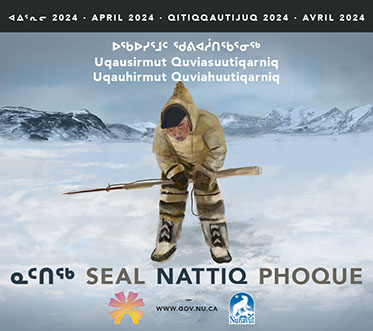Inuit should question authority
Authority — who has it, and should we give into their authority so willingly?
Back in June, a teacher in Salluit was forced to stop teaching Darwin’s theory of evolution, because it offended Inuit values and beliefs.
And I recently saw a documentary called Age of AIDS on PBS Frontline, where United States congressman Jesse Helms opposed any funding to fight the spread of AIDS around the world, because it conflicted with his religious values.
It didn’t matter that there were millions of lives that could have been saved from the deadly virus. Anyways, this is not about religion or Inuit values or AIDS or Darwin’s theory.
The question I have is about who has the authority to speak for us, or more importantly, make decisions on our behalf as a society and give them authority without question?
Who has authority, besides the obvious elected people, but even if they are elected, do they have the right to speak on our behalf? And do they have the right to make decisions based on their personal values? Or should we force them to make a decision based on society’s needs in general?
Inuit values is an interesting concept. We can’t generalize, or lump people into one category, but it seems as if it’s okay to say that there’s the Inuit way of doing things.
We come from the same ancestry, with similar values and beliefs as a people, but we also have the free will to think for ourselves as an Inuk, (one individual), and always had disagreement.
There’s a common word at least at home, “isumasuqtuq,” that he or she is making up their own mind or decision, and we don’t seem to think like that anymore, that we can make up our own minds and decisions without fear of reprisal. That’s what people in authority seem to forget.
The point I am trying to make is, why should the teacher in Salluit be punished or forced to change his teaching, just because a person in authority doesn’t agree with his teaching? Or why does a congressman have the right to block funding that has the potential to end the suffering and dying of millions of people, just because he held to his beliefs?
What is more important is that we seem to be more of a complacent society, because someone claims to speak on Inuit ways or values, and someone who speaks on their religious beliefs, even though we don’t agree with them.
With all the new technology — email, internet, television — we should be able to have debates on various issues that affect us today, without prejudice or fear of reprisal. I wonder how many people feel the same way about issues, but are afraid to speak out, because they think that their views are different or do not comply with the rest of society.
If we truly value our freedom, and believe that everyone is equal, then we should really start questioning our leaders on what their intentions are and what they would do with their authority to improve our society.
Robert Tookoome
Iqaluit




(0) Comments